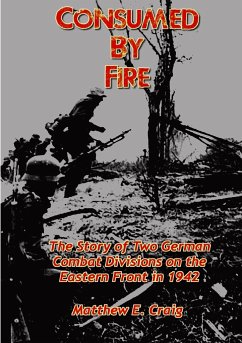
The War Behind the Eastern Front
Soviet Partisans in North West Russia 1941-1944
Versandkostenfrei!
Versandfertig in 1-2 Wochen
70,99 €
inkl. MwSt.

PAYBACK Punkte
35 °P sammeln!
A study, based on Soviet and German archival sources, of Soviet partisan activities in the rear of the German Army Group North 1941-44.













![Mutiny On The Western Front [Large Print 16pt] Cover Mutiny On The Western Front [Large Print 16pt]](https://bilder.buecher.de/produkte/68/68295/68295156n.jpg)
